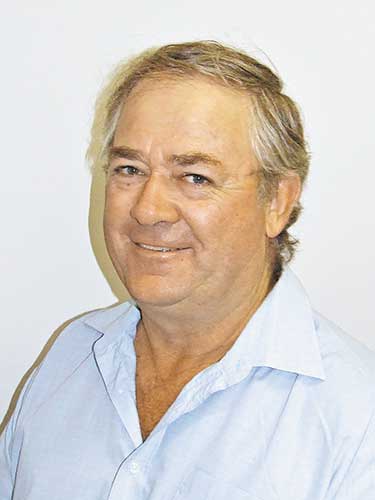Patrick Hill, Councillor, Shire of Laverton, Western Australia
Councillor Patrick Hill has a deep connection to the Shire of Laverton, a remote region in Western Australia.
“I have lived in the area all my life. I am fourth generation of the Hill family, with my family arriving in the Laverton area in 1896,” he told LG Focus.
Cr Hill was elected to Shire of Laverton Council in 1992. He has held the position of Deputy President for nine years and President for four years this October.
“Living in Laverton for so long, I have a collection of local knowledge, and particularly understand the challenges of living remotely. I have seen Laverton with 25 residents and with 2000 residents.
“Having family members play a vital role in the community over the years, through local government, business and voluntary organisations, our family has earned trust and respect and I am fortunate enough to have inherited this stature in our region.”
Cr Hill’s Father – who served on Council for forty years – was named a Freeman of the City, which Hill notes as one of his proudest moments to date.
There are a number of major mining operations within close proximity to Laverton, which mine gold, nickel and rare earths. These mines have approximately 2500 staff that work on a fly-in, fly-out basis from the mine sites.
Laverton, prior to 1970 was predominately supported by pastoralists and Aboriginal communities. In February 1970, the Mt Windarra Poseidon Nickel project was founded and sent stock markets around the world into a frenzy when the price of shares jumped from $1.85 to $280 per share.
After this the town of Laverton was redesigned, revamped and transformed to house a work force of around 2000 people at its peak. Although, since the Windarra Nickel mine shut down in 1994, the town’s population has dropped to around 400 people.
Cr Hill has worked for various mining companies in the Laverton area, first as an employee then as an earthmoving contactor. He is currently employed as a station manager for a major mining company, managing their pastoral station, and outside of work hours continues to operate his earth moving business.
Cr Hill was nominated as an LG Focus High Acheiver by fellow Laverton Councillor Beatrice Fuamatu, who cited Hill’s commitment to the Outback Highway Development Council as grounds for selection.
“I have held the position of Chairperson of the Outback Highway Development Council since its inaugural meeting in 1992, representing the Laverton Shire,” Cr Hill said.
“This organisation consists of seven Shires over three states, and our goal is to see this existing road sealed, becoming a major national road link, linking Perth to Alice Springs and Cairns.
“My aspiration is to see Laverton with a secure economic income from tourism rather than be reliant on the ups and downs of the mining industry. I see the Outback Way as playing the key role in this aspiration.”
Recently, the Federal Government committed $42 million to seal the Outback Way, which was matched by the State and Territories.
Cr Hill said this is promising for Laverton’s future.
“Being a gateway to a number of Four Wheel Drive adventure tracks and the start of the Outback Way – Australia’s longest short cut – Laverton is set to become a major tourism centre in the near future.”
Cr Hill said it is difficult for remote areas to obtain government funding.
“I regularly lobby for better services and facilities for our remote Shire. I find that it is extremely hard these days to attract government commitment of services and funding opportunities to remote towns such as Laverton.
“After years of lobbying and constant campaigning, receiving a $19 million commitment to a new Health Campus was a very satisfying moment.
Cr Hill said he thoroughly enjoys his role as Shire President, but the major challenge is “being able to find enough time in the day to achieve all my goals for the town. It is important to maintain a good working relationship with the Shire staff and residents, which can sometimes be challenged by negative outside influences.
“I enjoy being able to make a positive difference in the region. I especially like the people you meet and the connections you make while in the role.”

















